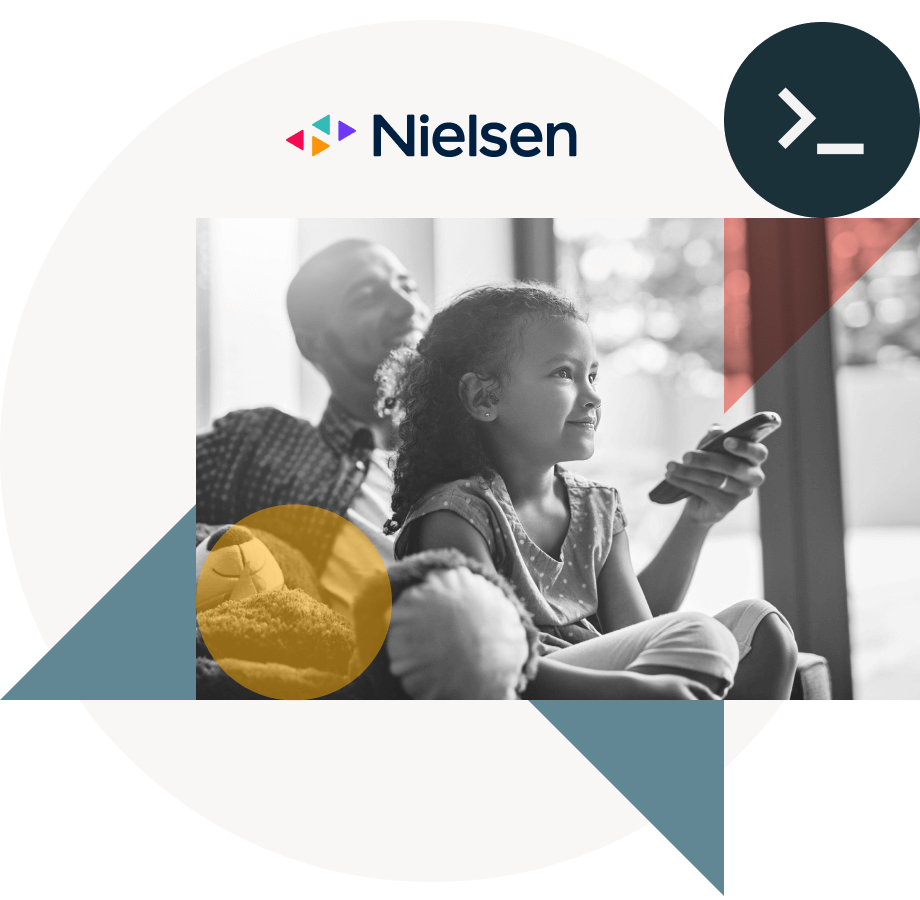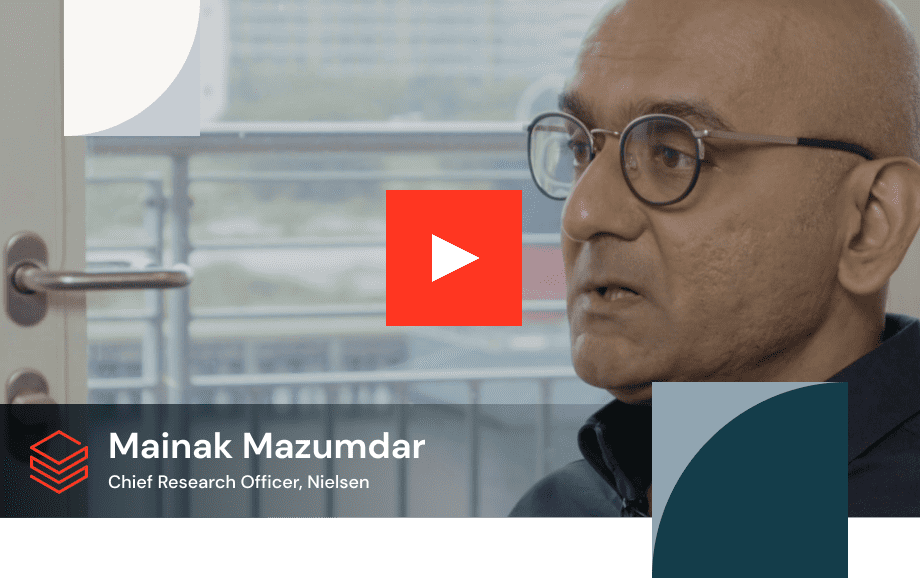AI-first strategy powers innovation at scale

"Databricks is really an important part of our AI strategy. As we continue to digitize our business, and explore opportunities and challenges through AI and machine learning, we will continue to activate Databricks throughout the rest of the business."
Nielsen is a leading global information & measurement company, provides market research, insights & data about what people watch, listen to & buy.
The Challenges
- They were not able to scale on a single machine to process and analyze a massive volume of data that needed to be prepared for downstream analytics.
- The legacy infrastructure was not able to handle massive volume of data. They didn’t have the right tools which made access, preparation, and analysis very cumbersome.
- Lack of Apache Spark expertise – The majority of their data scientists were versed in legacy technologies (SAS and Netezza) and weren’t equipped to take advantage of the power of Spark.
- Struggled to access data spread across various disparate systems across the globe.
- Cycle time between R&D and deployment into production was too long due to the complexities of their legacy systems (i.e. having to rewrite code for deployments, resulting in errors).

Customer Testimonial
The Solution
Databricks provides Nielsen with a unified analytics platform that serves as the core foundation to build their AI-first strategy upon.
Highly scalable, fully managed, multi-cloud service (AWS and Azure) that unifies both data engineering and data science in a single platform.
Automated cluster management simplifies the provisioning of clusters at any scale.
Support for multiple languages (SQL, Scala, Python, R) to ensure all team members are productive within the collaborative notebook environment.
Unification of both batch data sets and live stream data from their IOT devices, allowing them to reuse code across both workloads which significantly reduces data engineering effort.
Integration with key deep learning frameworks and libraries such as TensorFlow, Keras, and Pytorch.
The Results
Databricks has fueled a rebirth of Nielsen’s culture. There has been a huge transformation in terms of how teams work together and how work gets done. The collaboration across teams has greatly improved performance, speed and scale that ultimately leads to innovation.

